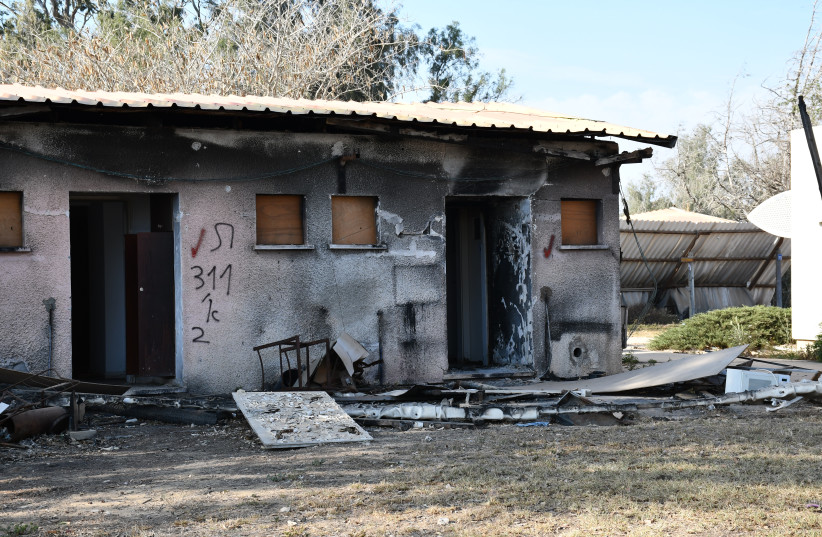The sun was just beginning to rise over Netanya as Romi Dudai prepared for her first day at a new school – again. Far from the familiar fields of Kibbutz Nirim, where she had grown up, Romi now found herself in a city she hadn’t called home for nearly eight years.
Her kibbutz, once a place of safety and community, had been devastated by the October 7 massacre and the ongoing war it led to.
Romi’s journey from Nirim to Netanya was not one of choice but of necessity, a forced displacement that she shares with over 20,000 other Israeli students who have been uprooted from their homes due to the ongoing conflicts in the North and Gaza border region.
Romi’s story, like those of many others, paints a vivid picture of the new reality facing countless Israeli families. These young Israelis are not just starting a new school year – they are navigating a world where the normal rhythms of life have been upended by war.

Anxiety overcoming the prospect of new beginnings
For many, the excitement of a new beginning is overshadowed by the anxiety of the unknown and the pain of leaving behind the places and people they love.
As we face this unsettling situation, it is crucial for all Israelis to recognize that this is not a temporary disruption. The conflicts that have caused such upheaval in our schools and communities are not fleeting; they are the reality we may need to live with for years to come.
This is not an easy truth to accept, but it is a necessary one. The ongoing threats to our security require us to adapt, not only in our day-to-day lives but also in how we prepare our future generations for a world where peace is not guaranteed.
Yet, even as we support these students in their immediate needs, we must also think long-term. Israel’s education system has a vital role to play, not only in helping students recover from the disruptions caused by war but also in preparing them to live in a country where the specter of conflict is a constant presence.
This means that our schools must do more than teach academic subjects; they must also instill a deep understanding of our heritage, our history, and our shared destiny as a people.
Teaching the next generation the importance of prevailing this trying period
In these challenging times, it is more important than ever for our students to be educated about the significance of the Jewish state. They should be taught to take pride in their Judaism and in their identity as Israelis.
The resilience and determination that have defined the Jewish people throughout history must be passed down to the next generation, who will inherit the responsibility of preserving and defending the State of Israel.
The importance of a Jewish state cannot be overstated. It is not just a refuge; it is the embodiment of our collective aspirations, a place where Jewish culture, religion, and identity can thrive. In a world where antisemitism and hostility toward Israel continue to rise, our students must understand that their education is not only about personal advancement but also about sustaining the legacy of a people who have endured through millennia.
This call to action is not just for educators but for all Israelis. We must all recognize that the security challenges we face are not likely to disappear soon. The resilience that has carried Israel through its first 76 years must continue to be nurtured in our schools, our communities, and our national consciousness.
As we begin this school year, let us commit to not only protecting our children physically but also fortifying them spiritually and intellectually. Let us ensure that they are not only safe but also proud of who they are and where they come from. In doing so, we will be preparing them not just for the challenges of today but for the uncertain future that lies ahead.
It is up to us to ensure that our children are equipped to carry the torch of Jewish sovereignty, culture, and pride into the years to come.
